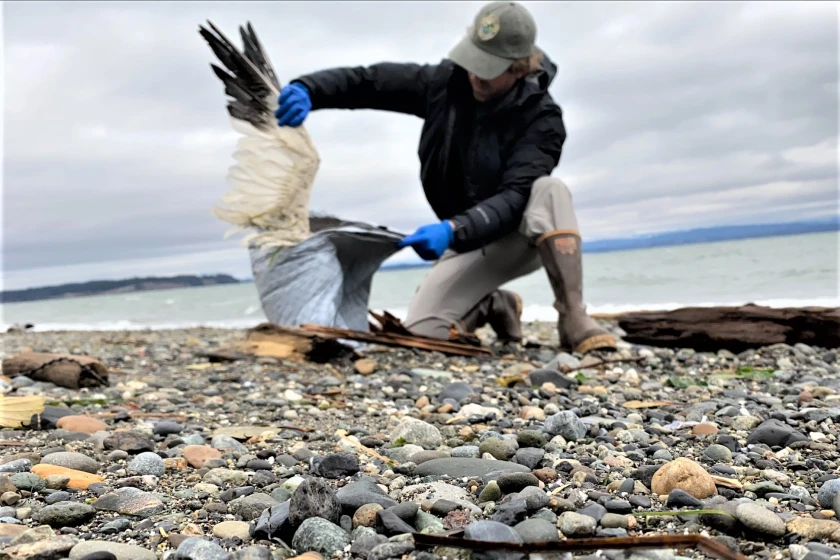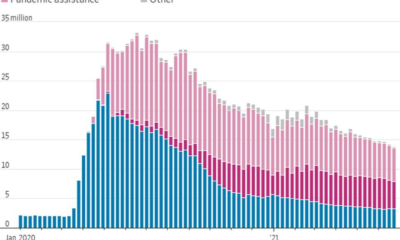Featured
What Canned Cocktails & Rental Cars Teach Us About Equality In Taxation – Forbes

Two industries, rental car companies and canned cocktail makers, are taking contrasting approaches … [+]
The cost of automobile ownership was significant even before the pandemic, with vehicles among the most expensive lifetime purchases for many. In the past year though, the average price of a new car has risen nearly 13%. This increase in car prices has outpaced the highest annual inflation rate since 1982 and comes at a time when real wages have fallen by 2.8% over the last year, which is a bigger annual drop off than any pre-pandemic year in the past four decades. Technology & the ubiquity of smart phones, however, are permitting people to offset the considerable cost of car ownership by utilizing apps that allow them to access car-sharing networks through which they can lend their personal vehicle to those who need one, generating income in the process.
Yet politicians in numerous state capitals are now seeking to impose new taxes and regulations on those who are benefiting from car-sharing networks, proposing legislation that would adversely affect both the hosts who gain a new source of income by lending their car, as well as the guests who pay to use someone else’s vehicle when in need. A debate over car-sharing and how it should be taxed is currently playing out in the Pennsylvania capital, where state lawmakers recently held a hearing on House Bill 2099, legislation that would apply rental car excise taxes to people who borrow a car through a car-sharing network. Proponents of the bill, namely rental car companies, claim it will “level the playing field,” applying rental car excise taxes to both rental car customers and those who pay to borrow vehicles through car-sharing networks.
Lobbyists for legacy rental car companies who are pushing HB 2099 claim they’re at a tax disadvantage relative to car-sharing services, since rental car companies assess rental car excise taxes that do not apply to car-sharing transactions. Yet advocates for such proposals fail to mention the existing tax advantage that rental car companies currently have over car-sharing services.
In the 45 states that levy a sales tax, rental car company fleet purchases are usually exempt from state sales tax. That is typically not the case for people who lend their personal vehicles out through car-sharing networks. Unlike the cars purchased by rental car companies, most personal vehicles are subject to state sales tax.
In fact, many state rental car excise taxes were initially imposed to offset rental car exemptions from sales tax and carveouts from other taxes and fees. Back in 1981, for example, Illinois lawmakers instituted a 4% rental car excise tax in exchange for exempting rental car companies from occupational tax and use taxes. In 1984, Vermont lawmakers enacted a rental car excise tax in exchange for exempting rental car fleet purchases from sales tax. More recently, in 2000, West Virginia lawmakers imposed a rental car excise tax in exchange for a motor vehicle gross receipts tax exemption for rental car companies. Similar deals, with rental car excise taxes approved in exchange for other tax exemptions for rental car companies, have been implemented in other states.
“Everyday Pennsylvanians have to pay sales taxes when they buy new cars – but Pennsylvania exempts Big Rental from sales tax on cars bought for their fleets,” noted Steve Delbianco, president and CEO of NetChoice, in testimony to Pennsylvania legislators. “The cost of these avoided sales taxes in Pennsylvania alone are estimated at nearly $150 million each year. This is just one indication that the Commonwealth treats the Big Rental business model and operational scale as fundamentally distinct from a Pennsylvania citizen who rents her car or truck to others to earn extra income.”
By employing the same logic as backers of HB 2099, car-sharing hosts could urge lawmakers to pass legislation forcing rental car companies to pay sales tax on their fleet vehicle purchases. Such legislation would arguably, to borrow language from HB 2099 backers, “level the playing field,” but that’s not what car-sharing hosts are seeking. Instead, they’re simply asking to not be subject to a rental car excise tax that was never intended for personal vehicles lent out through car-sharing networks.
Aside from Pennsylvania, legislation to apply rental car excise taxes to car-sharing transactions are also pending in Michigan, Alaska, and Kentucky. In addition to imposing rental car excise taxes on those who utilize car-sharing networks, many of these bills would also regulate and restrict the manner in which people can lend out their cars on peer-to-peer networks.
“A mom who lost her husband to Covid and who’s now supporting her family should be allowed to rent his unused car for spare money without having to jump through unnecessary hoops just to compete with Big Rental,” added Delbianco. “It’s not fair to her, or to her riders—all of whom intentionally choose not to rent from Big Rental, presumably for a reason.”
While rental car companies are pushing state legislators to raise taxes in the name of “leveling the playing field,” the spirits industry is demonstrating a more free market approach to the same objective, seeking to achieve said leveling through tax relief instead of tax hikes. Canned cocktails face discriminatory taxation and legislation to rectify that fiscal policy imbalance is now pending in multiple state capitals.
Canned cocktails, also known as ready-to-drink (RTD) cocktails, are available at retailers alongside other popular beverages likes alcoholic seltzers. Yet, even though they contain roughly the same alcohol by volume as popular seltzers like White Claw, RTD cocktails are assessed a much higher excise tax due to the fact that the alcohol is derived from spirits and not fermented sugar as is the case with White Claw and Truly, which are assessed a lower excise tax rate. Seltzers made from fermented sugar have a tax advantage over canned cocktails at the federal as well as state level.
“Because White Claw is brewed like beer, it’s taxed like beer, which is important because beer is taxed in the U.S. at a much lower rate than spirits,” noted a 2019 New York Magazine article titled ‘How Tax Policy Gave Us White Claw.’ “If you made a product similar to White Claw by mixing vodka with seltzer and putting it in a can, a six-pack would be subject to almost $2 in additional taxes when sold in New York City.”
If producers of RTD cocktails took the same approach as rental car companies, they would ask lawmakers to introduce legislation raising taxes on White Claw and other seltzers made from fermented sugar. That’s not what they’re doing. Instead, the companies that make RTD cocktails are advocating for state legislation that would have the excise tax rate paid on RTD cocktails be lowered to the same rate that currently applies to alcoholic seltzers and other beverages with a similar alcohol content. House Bill 2627, for example, was introduced in the Arizona Legislature in January and is now working its way through the legislative process in the Arizona House. That bill is one of multiple pending pieces of state legislation that would reduce excise taxes on RTD cocktails.
“We get these arguments all that time that we should just keep in statute things that were done when buggy whips were around,” said Arizona Representative Jeff Weninger (R) about opposition to HB 2627. “We’ve changed. I think this market gained a 23% market share in two years, which is just unprecedented in this industry. Now, different people are trying to get in it but our antiquated laws treat liquor…These two things right next to each other are essentially the same thing but one is charged 16 cents a gallon and the other is charged $3 a gallon.”
“The higher tax rate could be serving as a barrier to entry for more offerings,” writes Cole Lauterbach, a regional editor with The Center Square covering Arizona. “According to a 2021 poll of craft distillers commissioned by the Distilled Spirits Council of the United States (DISCUS), 62% of respondents cited the higher tax rate as a barrier to producing ready-to-drink products.”
Aside from Arizona, similar legislation to reduce the state excise tax rate on RTD cocktails has been introduced this year in nine other state capitals (Alabama, Kentucky, Maryland, Nebraska, New Jersey, North Carolina, Oklahoma, Pennsylvania, and Vermont). While rental car companies and RTD cocktail makers are seeking the same objective, equality in taxation, they’re taking very different approaches to it. Rental car companies are working to achieve state tax policy parity through legislation that imposes a tax hike, while RTD cocktail makers are pursuing a resolution that involves tax relief. As Americans contend with the highest inflation rate in four decades, any legislation that imposes new and higher costs on consumers, as rental car companies are now pushing for, is likely to face more opposition than in the past. It will be worth watching to see, by the time all state legislatures have adjourned for the year, which of these two contrasting approaches to “leveling the playing field” will have had a higher success rate.
Featured
Jenny Craig is reportedly winding down its weight-loss centers and warning of mass layoffs

Jenny Craig is reportedly shutting down some of its weight-loss centers and warning employees of mass layoffs amid upheaval in the industry from popular new prescription drugs like Ozempic.
Jenny Craig alerted employees to potential layoffs as it begins “winding down physical operations” and hunts for a buyer, according to NBC News. Jenny Craig has nearly 500 weight-loss centers in the United States and Canada.
The company, founded in 1983, did not disclose to how many weight loss centers will close or how many employees will be impacted.
“Like many other companies, we’re currently transitioning from a brick-and-mortar retail business to a customer-friendly, e-commerce driven model. We will have more details to share in the coming weeks as our plans are solidified,” a spokesperson for Jenny Craig said in a statement to .
Jenny Craig’s program provides nutritionally balanced menus, which include entrees, desserts and snacks, designed to help people lose weight. Bloomberg reported this week that the company has roughly $250 million of debt and is considering a bankruptcy filing if efforts to find a buyer for its assets fail.
It’s the latest sign of major changes in the weight-loss industry, brought on by popular new prescription diabetes drugs such as Wegovy, Ozempic, and Rybelsus.
These relatively new drugs work by stimulating the release of insulin, which helps lower blood sugar. They also slow the passage of food through the gut.
The FDA approved Ozempic for the management of diabetes in 2017 and Wegovy for weight loss in 2021.
Traditional weight-loss companies are scrambling to adjust. WeightWatchers is also getting into the prescription weight-loss drug business.
The company, now known as WW International, recently bought Sequence, a telehealth subscription service that connects patients with doctors who can prescribe weight-loss and diabetes drugs.
The $106 million acquisition of Sequence will give WW a foothold into the growing market for prescription drugs to manage weight loss.
Ozempic has gained popularity in part due to celebrities using it for weight loss.
But there are many concerns with using diabetes drugs for weight loss, including high costs and shortages that are making it harder for people with diabetes to obtain the drugs.
Featured
Minnesota tops nation in wild birds confirmed dead from bird flu

The deadly bird disease is back this spring, and, in fact, never left over the winter.
Highly pathogenic avian influenza is back killing domestic poultry and wild birds in Minnesota again this spring as huge flocks of migratory birds carry it north for another season.
But, in fact, the deadly bird disease never left the state, even over our long winter, with birds dying in December and January and some new research showing the killer flu virus may survive even in cold Minnesota lake water — with no host bird — during the winter.
That’s the update from wildlife biologists as the great spring migration descends on Minnesota, as the snow line recedes north and ice on lakes and rivers begins to let loose.
Since the disease was first reported in Minnesota just over a year ago, some 566 birds have been tested and confirmed carrying the H5N1 strain of bird flu that’s been expanding worldwide since 2020, according to data from the U.S. Department of Agriculture. Wisconsin has had 211 confirmed cases and North Dakota 310 as of April 11.
Nationally, more than 6,500 wild birds have been confirmed dead from the virus over the past year, some from all 49 continental states, although wildlife experts say that’s likely a gross under counting of the total number, most of which die and are never found by people.
Featured
Outdoors notebook: Hoeven, Heinrich introduce CWD Research and Management Act

Bipartisan legislation would empower state, tribal governments to address and prevent CWD outbreaks.
Bipartisan legislation introduced Thursday in the U.S. Senate aims to address the growing problem of chronic wasting disease in wild populations of deer, elk and moose.
Sens. John Hoeven, R-N.D., and Martin Heinrich, D-N.M., introduced the Chronic Wasting Disease Research and Management Act. The bill is a Senate companion to legislation the House of Representatives passed last December with an overwhelming 393-33 vote.
The bill would authorize $70 million per year, split evenly to support both the research and management of CWD. The U.S. Department of Agriculture would administer the funds through cooperative agreements with state and tribal wildlife agencies and agriculture departments.
The legislation also includes an authorization for USDA and state and tribal agencies to develop educational materials to inform the public on CWD and directs USDA to review its herd certification program within 18 months, according to a news release from Hoeven’s office.
“CWD is a growing threat to both wildlife and livestock, impacting sportsmen, ranchers and the local ecology of regions across the U.S.,” Hoeven said. “Our legislation would empower state and tribal governments to better manage and prevent outbreaks of this deadly disease, while also advancing new methods for detecting CWD and limiting its spread.
-

 Business3 years ago
Business3 years agoHyundai Leads Industry in U.S. News & World Report 2023 Best Cars for the Money Awards
-

 Innovation3 years ago
Innovation3 years agoJay-S ventures into the urban genre with “Bailar en la Playa” his latest production
-

 Business3 years ago
Business3 years agoThree Questions Small Business Owners Should Ask In Creating A Workplace Culture – Forbes
-

 Business3 years ago
Business3 years agoA Fintech Makes It Easy For Small Businesses To Offer 401(k) Retirement Benefits – Forbes
-

 Business3 years ago
Business3 years agoBritain’s Small Businesses See Better Times Ahead But Is Their Optimism Justified? – Forbes
-

 Money3 years ago
Money3 years agoCharlie Crist leads Democratic gubernatorial field again in money chase – Florida Politics
-

 Money3 years ago
Money3 years agoTesting New Tools for Horizon Worlds Creators To Earn Money
-

 Business3 years ago
Business3 years agoSmall Business Labor Shortage – Forbes
